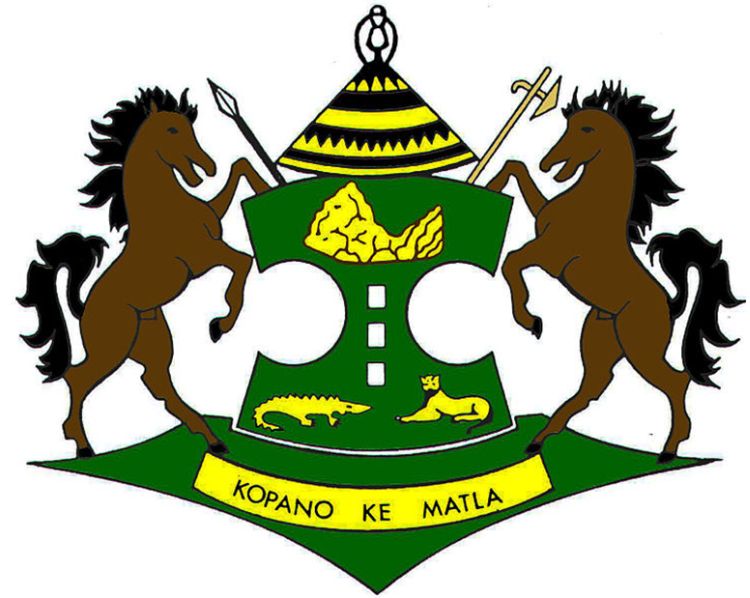QwaQwa: Difference between revisions
Jump to navigation
Jump to search
Knorrepoes (talk | contribs) No edit summary |
Knorrepoes (talk | contribs) |
||
| Line 19: | Line 19: | ||
The shape of the shield is the typical Sotho or Tswana shield. Behind the shiled are some weapons, symbol for power and strength. | The shape of the shield is the typical Sotho or Tswana shield. Behind the shiled are some weapons, symbol for power and strength. | ||
The upper half of the shield shows Sentinel Peak, a local landmark. The crocodile is the symbol of the Kwena people and is also part of the arms of the neighbouring | The upper half of the shield shows Sentinel Peak, a local landmark. The crocodile is the symbol of the Kwena people and is also part of the arms of the neighbouring [[Lesotho]]. The leopard is the symbol of royalty in general. | ||
The hat is part of the traditional Basotho dress, whereas the supporters indicate the importance of the Basotho pony for transport. | The hat is part of the traditional Basotho dress, whereas the supporters indicate the importance of the Basotho pony for transport. | ||
Revision as of 07:20, 29 October 2012
| Heraldry of the World Civic heraldry of South Africa |
QWAQWA
Created :1972
Incorporated into : 1994 Free State
Official blazon
Origin/meaning
The arms were granted on September 8, 1972
The shape of the shield is the typical Sotho or Tswana shield. Behind the shiled are some weapons, symbol for power and strength.
The upper half of the shield shows Sentinel Peak, a local landmark. The crocodile is the symbol of the Kwena people and is also part of the arms of the neighbouring Lesotho. The leopard is the symbol of royalty in general.
The hat is part of the traditional Basotho dress, whereas the supporters indicate the importance of the Basotho pony for transport.
The motto is Unity is strength in the local language. This is also the old motto of South Africa.
Literature : Picture provided by Bruce Berry

